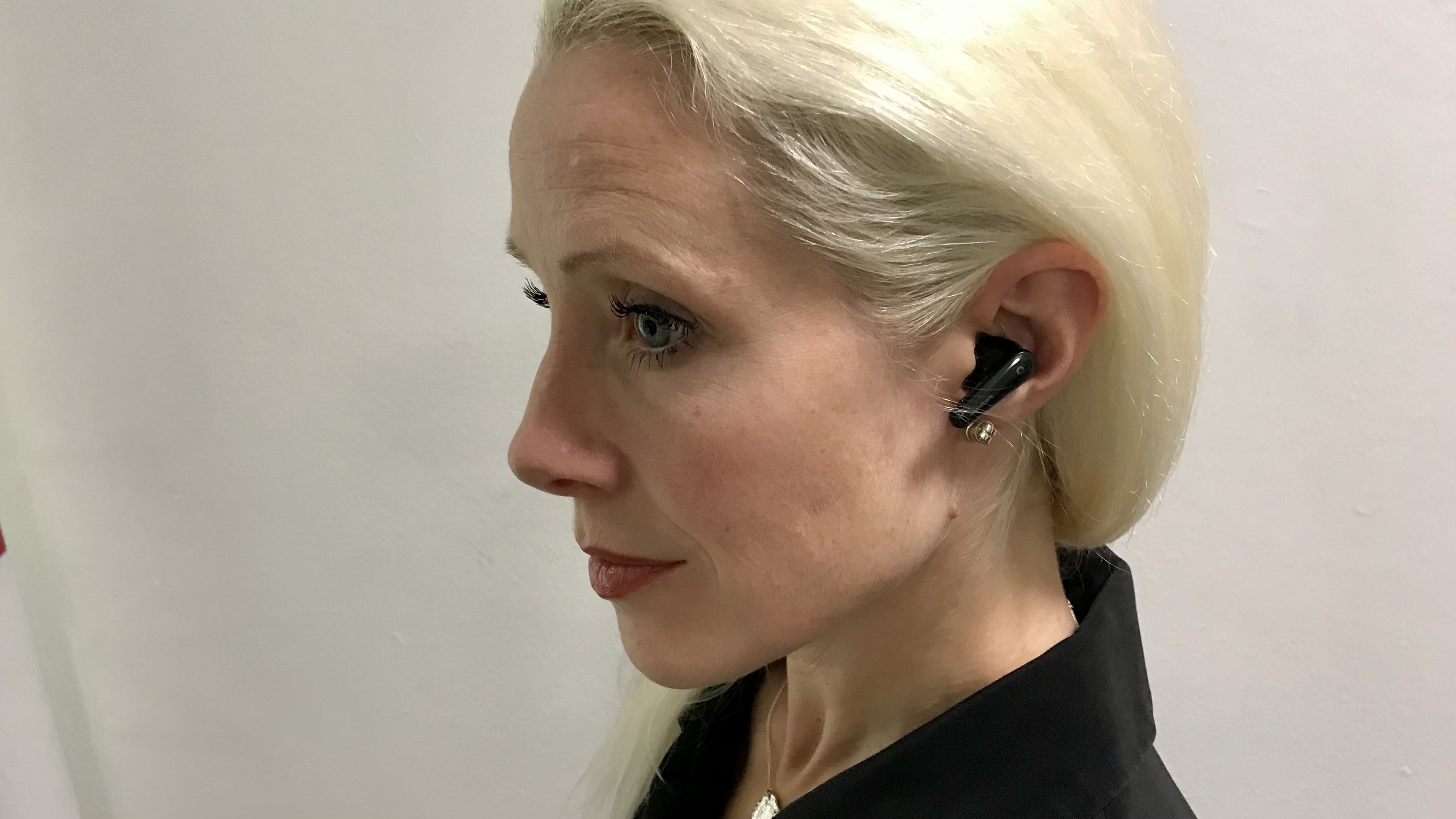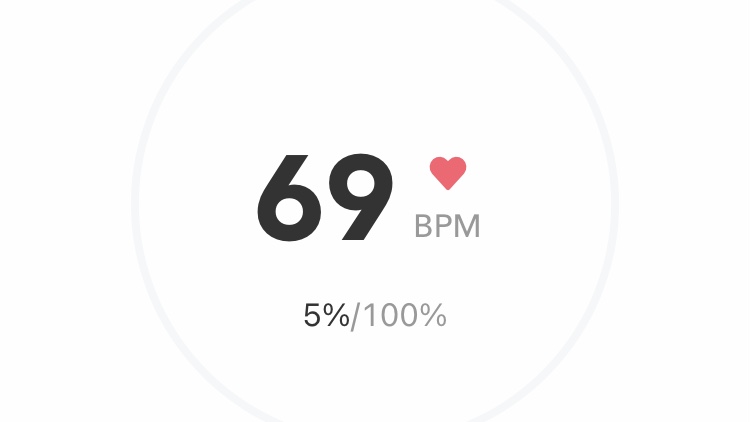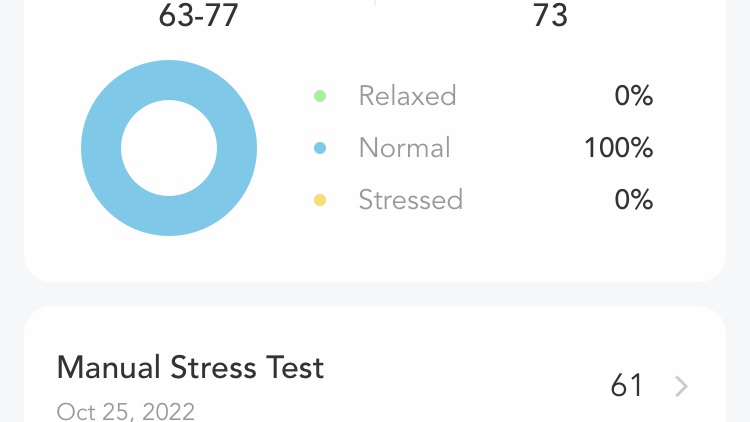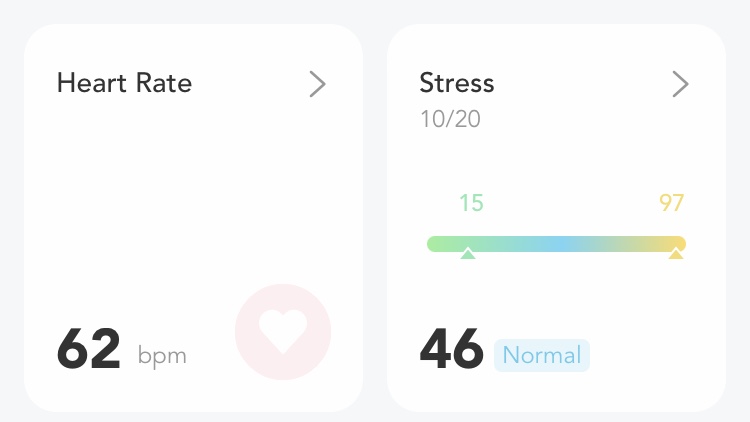I tried the world’s first 'stress testing' earbuds and I genuinely feel much better
Never thought I needed my earbuds to tell me about HRV, but now I can’t live without it

Hello, my name is Becky and despite prioritizing sound-quality above all else in true wireless earbuds, I love the world’s first heart-rate monitoring set. There, I said what I said.
The feature has been a while coming. When the Honor Earbuds 3 Pro initially boasted it, but didn't get the desired medical backing to support the perk (and then neither did the even newer AirPods Pro 2) I thought that earbuds able to take your pulse simply weren't possible – or perhaps not desirable enough to warrant the extra effort needed to make it work.
Then, casually, the Anker Soundcore Liberty 4 were released in early October. And the elusive ticker-taker is there – no drama. Also, the feature set is extensive, including active noise canceling via HearID ANC and head-tracked spatial audio.

But I'm not focusing on that exhaustive list right now – this is not a full review of the product (that will come). I want to tell you about the feature unique to the Liberty 4, namely the heart-rate monitor nestled in the right earbud (remember, this is something that was supposed to be present in the Apple earbuds but was apparently cut) and how much I actually love it, against all the odds.
Opinion: I had reservations about earbuds that want you to sit still and take a manual stress test, but it helps

Another admission: even as a professional dancer and aerial performer, I've never taken much of an interest in fitness trackers. What you don't know can't hurt you, right?
I know I must have a heart that beats, otherwise I wouldn't be here. Does it really matter how fast it's ticking along? But the thing is, it does – for one key reason which has helped me more than I thought it would.
When you buy a set of Anker Soundcore Liberty 4, you must first activate the heart rate sensor via the Soundcore app; no other accessory is needed. The app actually logs your heart rate data and you can view the logs to see the patterns and how it changes when you do different activities.
Get daily insight, inspiration and deals in your inbox
Sign up for breaking news, reviews, opinion, top tech deals, and more.
What did I learn from this? I learned that my heart can get almost as jumpy from a stressful work day as it can from a pretty intense dance rehearsal. It's all to do with the Wellness tab (a word I shied away from until now, because it conjured up images of scented candles and cake to me) and in particular, the Stress tab, next to the Heart Rate section.
No fitness tracker, no problem

Stay with me: these earbuds actually offer stress detection – and despite my initial scepticism, I think the feature is really worth a go.
This is because within the Stress section of the app you can take a "manual stress test". Whether or not it is accurate from a medical perspective I am not qualified to say. However, I can tell you that it has helped me a lot, because it asks you to sit quietly, relax, and take deep breaths for the duration of the test (about three minutes). And sometimes, during the chaos of an afternoon in a busy, thriving publishing house, I need that.
Soundcore explains that stress detection records daily changes based on Heart Rate Variability (HRV). HRV refers to tiny variations in time between each of your heartbeats. People with higher HRV may be able to cope with stress better (rolling with the punches, etc.). Excerise, sleep and a healthy diet can all help to increase your HRV. But crucially, the stress status will not be recorded if you are moving or even chewing during the test…
Did it really take an in-app stress test within a set of earbuds to get me to take a few mindful moments at my desk? Apparently so. But Anker, thank you, I am truly grateful.
Cold cold heart…

Practically every time I've taken this test since last Monday, my results have been "normal", (rather than "relaxed" or "stressed") but I worry that without them – without those few moments of quiet, contemplative breathing and watching the blue test indicator create its full circle – I may have started to 'flap' at my desk under the weight of tasks, as I often do. Honestly, this simple routine has changed my working day.
Now, the company does state that these features are meant for general health and fitness use rather than being a proper medical device. So, you might worry it's not the most accurate. I cross referenced my heart rate readings with a Whoop 4.0 (a wearable I'm trying out in a bid to get better, more restful sleep – but that's for another feature) and found the readings continually corresponded. So, although it may not be medical-grade, it's at least as good as a competing wearable.
Of course (and in case it needs to be stated), you do have to be wearing the earbuds to do any of these tests, so unlike the best fitness trackers (which can be strapped on a wrist and forgotten about), you do need to take into account how often you like using earbuds here. But as a regular music listener, this is not an issue for me.
Oh, and while I'm heaping praise upon the Anker Soundcore Liberty 4 earbuds, the agnostic head-tracked spatial audio is very good too, the transparency options (which include "fully transparent" and "vocal mode" profiles) are seriously effective and the exercise tracker is a great little addition.
And if you're keen, they're available now, priced $149.99 from Soundcore's US website ($100 cheaper than the AirPod Pro 2) which works out at around £130 or AU$236 in either Midnight Black or Cloud White finishes.
As I said, check back with us for a full review soon, but I have to say, from the comfort of my office chair and having just completed my stress test for the day, I'm already a fan. Could our best true wireless earbuds guide soon admit a new set? The vital signs are good…

Becky became Audio Editor at TechRadar in 2024, but joined the team in 2022 as Senior Staff Writer, focusing on all things hi-fi. Before this, she spent three years at What Hi-Fi? testing and reviewing everything from wallet-friendly wireless earbuds to huge high-end sound systems. Prior to gaining her MA in Journalism in 2018, Becky freelanced as an arts critic alongside a 22-year career as a professional dancer and aerialist – any love of dance starts with a love of music. Becky has previously contributed to Stuff, FourFourTwo and The Stage. When not writing, she can still be found throwing shapes in a dance studio, these days with varying degrees of success.